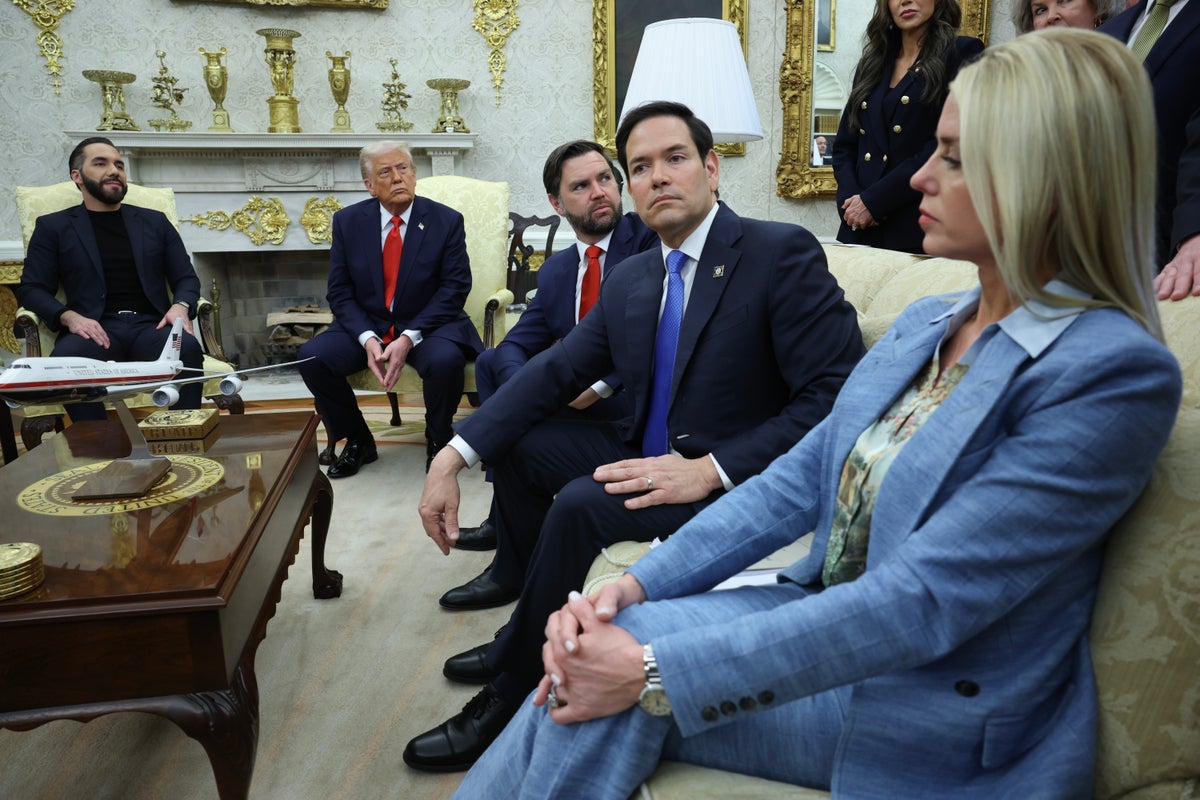UPDATE: Critical reports have emerged revealing that Secretary of State Marco Rubio allegedly compromised U.S. drug gang informants to finalize a controversial deal with El Salvador’s President Nayib Bukele. This agreement, sealed on March 13, 2023, involves the indefinite detention of dozens of Venezuelan deportees in the notorious Terrorism Confinement Center, known as CECOT, which human rights groups condemn as a “tropical gulag.”
This shocking arrangement occurred just days before former President Donald Trump invoked the Alien Enemies Act, facilitating the rapid deportation of alleged Venezuelan gang members. The Trump Administration’s access to CECOT is now under scrutiny, as it raises serious ethical questions regarding the abandonment of protected informants.
The deal was reportedly contingent upon Bukele’s demand to imprison MS-13 gang members who were, in fact, informants shielded by the U.S. Department of Justice. Instead of rejecting this alarming proposition, Rubio took steps to communicate with Attorney General Pam Bondi to remove those protections. This secret arrangement has been detailed in court documents and raises significant concerns about the safety of those informants.
A State Department spokesperson stated, “Americans elected President Trump because they were tired of politicians making excuses. The Trump Administration’s results speak for themselves.” However, many of the Venezuelans targeted for deportation were found to have no criminal records and were legally present in the U.S., which further complicates the narrative.
In a startling twist, a top judge in Washington, D.C., ordered the administration to halt deportation flights after learning that men were being sent to El Salvador under dubious circumstances. Despite this, the administration continued to push for rapid deportations, fearing potential backlash if Venezuelans were not removed quickly.
On July 18, 2023, over 250 Venezuelan men were returned to their home country following a trilateral negotiation involving the U.S., Salvadoran, and Venezuelan governments. Reports reveal that these men endured horrific conditions in CECOT, including physical and psychological abuse, with limited access to legal representation or contact with family.
As details of this scandal unfold, former Justice Department officials express outrage, fearing that years of investigative work against alleged gang members may be jeopardized. Daniel Brunner, a former FBI agent, lamented the potential consequences of abandoning cases against those who had cooperated with law enforcement.
The implications of this agreement are profound, raising urgent questions about U.S. foreign policy, human rights violations, and the treatment of vulnerable populations. With the administration reportedly using deportees as bargaining chips, the situation continues to evolve, demanding immediate attention from policymakers and human rights advocates alike.
As the fallout from this deal progresses, observers are left to wonder: what will the long-term consequences be for U.S. informants and the broader implications for international human rights? Stay tuned for further updates on this developing story.





































































